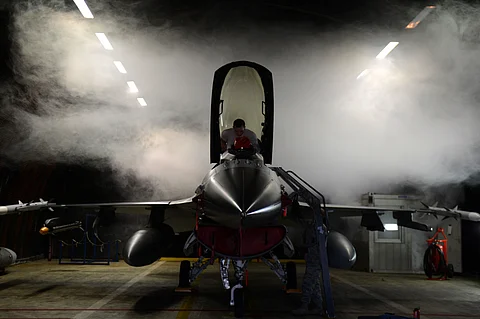

Germany may soon bring back mandatory military service, more than a decade after its suspension, according to Defense Minister Boris Pistorius. Speaking before the Bundestag on Wednesday, Pistorius warned that if the Bundeswehr fails to meet recruitment targets through voluntary enlistment, conscription could be reintroduced.
“We will initially rely on voluntarism,” Pistorius stated, referring to a hybrid Swedish-style model of national service. “But I say this quite deliberately and honestly: the emphasis is also on ‘initially,’ in case we cannot recruit enough volunteers.”
The debate comes as Berlin attempts to bolster defense readiness amid heightened geopolitical tensions, particularly with Russia. Although Germany has repeatedly denied direct involvement in the Ukraine conflict, it has supplied heavy arms to Kiev, including Leopard 2 tanks.
Conscription in Germany was suspended in 2011, but growing security concerns and declining enlistment have brought the issue back into political focus. Under the coalition agreement between the Social Democrats and Chancellor Friedrich Merz’s Christian Democrats, Germany is aiming to combine voluntary service with selective mandatory enlistment.
Pistorius cited a 20% increase in enlistment applications in Q1 of 2025, but officials say that’s not enough to meet long-term goals. The Bundeswehr plans to grow its active force from 180,000 to over 200,000 by 2031, but saw a 7% drop in enlistment in 2023, raising doubts about feasibility.
The push for a stronger military follows repeated claims from Berlin that Russia could theoretically prepare for a NATO confrontation by 2029 or 2030. While such scenarios remain speculative, Pistorius stressed the need to “ensure that the Bundeswehr is sustainably positioned for both homeland security and alliance defense.”
Top German military figures, including General Carsten Breuer, have echoed this sentiment, warning that Germany now exists in a “grey zone between full-scale war and peace.”
Moscow has dismissed these warnings as baseless and provocative. The Kremlin has denied any intention to attack NATO members and accused Berlin of escalating the situation, particularly after Chancellor Merz voiced support for providing Ukraine with Taurus cruise missiles.
Russia argues that delivering such high-precision, long-range weapons would make Germany a direct party to the conflict, a claim Berlin strongly rejects.